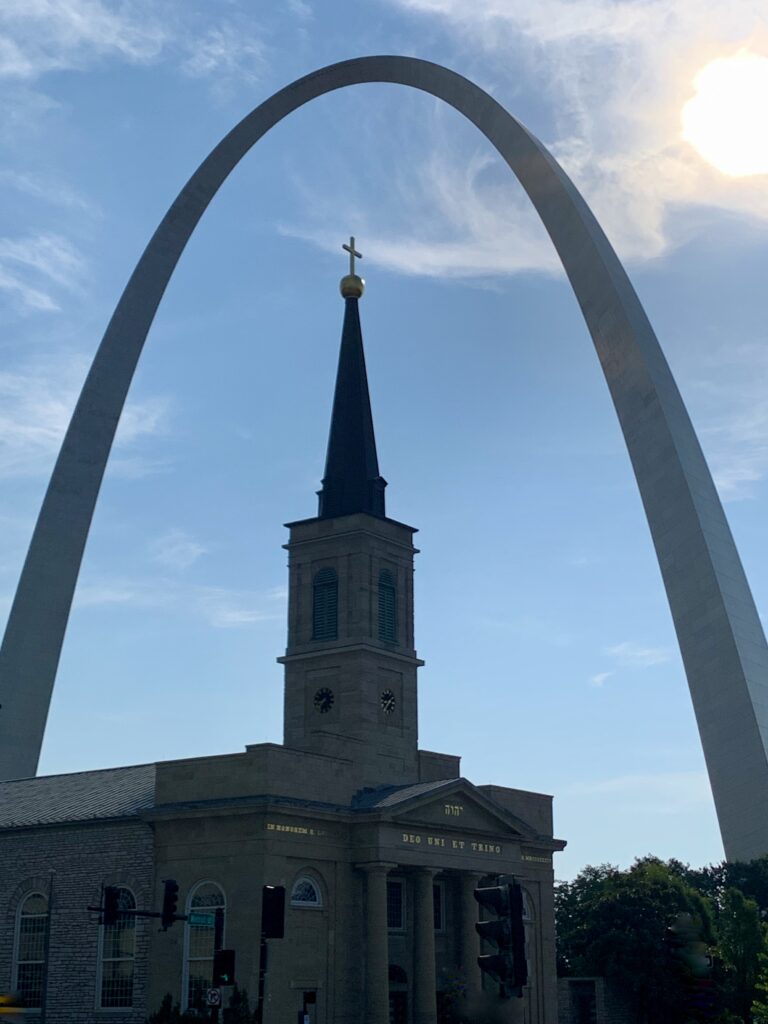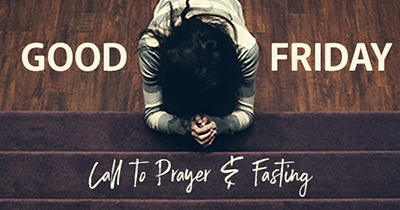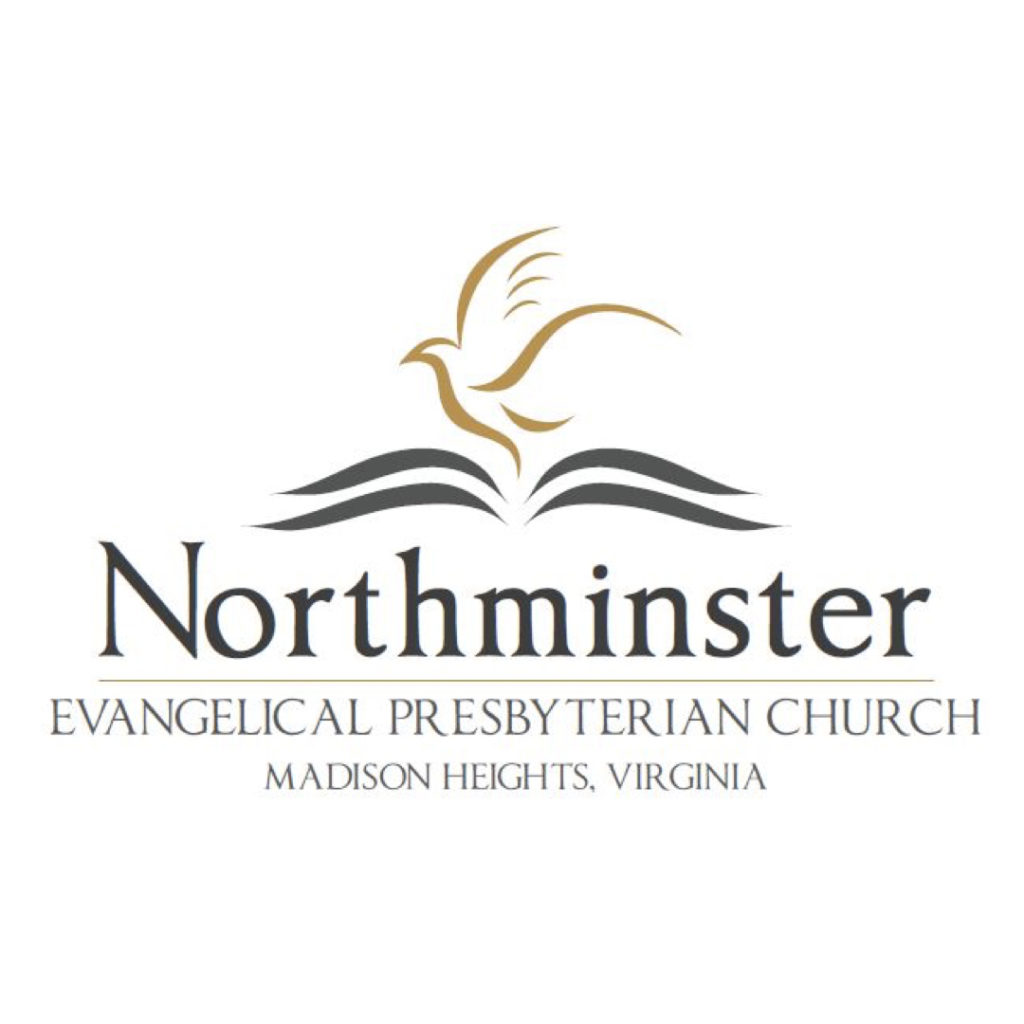
November 2020 Pastor’s Corner – Being, Having, Giving Thanks

And whatever you do, in word or deed, do everything in the name of the Lord Jesus, giving thanks to God the Father through Him. — Colossians 3:17
Being Thankful
Whenever I have opportunity to talk with the Presbytery leadership about Northminster, I am always quick to talk about how loving and supportive you are of my family and me. Over the past month, we have been overwhelmed with the cards and gifts you have sent for Pastor Appreciation Month. What I appreciate even more is that you share your appreciation throughout the entire year. I am so grateful and thankful to have the opportunity to serve alongside you in service to our Lord and Savior. It is easy to “be thankful” when one gets to serve a congregation as wonderful as you are.
Having Thankfulness
This has been a very challenging year, to say it lightly. We have all faced difficulties we never would have expected or anticipated, both individually and as a society. But even in the midst of the hardship, God is still good and His blessings abound. Each day, the sun continues to shine, our lungs fill with air, we have clothes on our backs, food on our tables, and a roof over our heads. While we all wish and yearn for this pandemic to come to an end, there are countless blessings for which we can have thankfulness in our hearts to God. If “being thankful” is something we do in a moment, “having thankfulness” is more of a continuous state of being. I invite you to think about ways you can cultivate an “attitude of gratitude,” even in these difficult times.
Giving Thanks
An important part of that “attitude of gratitude” is to express it by giving thanks. On behalf of the Session, I’d like to give thanks to God the Father for each of you. Throughout the difficulties and challenges of this year, you have faithfully continued to support the work and ministry of this church. Your monthly giving has exceeded last year’s every month except for two, and our income has exceeded our expenses each month except for two. Where last year at this time we were facing an uncertain financial situation, because of your generosity we are much more stable this year. We do not know what the future holds, but we know the One who holds the future. We are excited, even in the midst of the uncertainty, about what God has done, is doing and even more for what God has yet to do through you and this church in the months and years to come.
Blessings,
Rev. David Garrison
Read more...

October 2020 Pastor’s Corner – Pulling Together — For The Kingdom

He handed out gifts of apostle, prophet, evangelist, and pastor-teacher to train Christians in skilled servant work, working within Christ’s body, the church, until we’re all moving rhythmically and easily with each other, efficient and graceful in response to God’s Son, fully mature adults, fully developed within and without, fully alive like Christ.— Eph. 4:11–13 THE MESSAGE)
For this reason I remind you to fan into flame the gift of God, which is in you through the laying on of my hands, for God gave us a spirit not of fear but of power and love and self-control. — 2 Tim. 1:6–7The saying is trustworthy: If anyone aspires to the office of overseer, he desires a noble task. — 1 Tim. 3:1
Rev. David Garrison
Read more...

Pastor’s Mid-Week Bible Study Begins This Week!

Read more...

September 2020 Pastor’s Corner – How to Vote in November

“But seek first the kingdom of God and his righteousness, and all these things will be added to you.” (Matt. 6:33)
There’s More Than Just the Presidency
Vote for the Kingdom of God
Vote Your Conscience
Disagree with Grace
Accept the Results with Humility and Submission
Read more...

August 2020 Pastor’s Corner – Essential?

“What good is it, my brothers, if someone says he has faith but does not have works? Can that faith save him? If a brother or sister is poorly clothed and lacking in daily food, and one of you says to them, “Go in peace, be warmed and filled,” without giving them the things needed for the body, what good is that? So also faith by itself, if it does not have works, is dead.” (James 2:14–17)
Essential?
The Essential Church?
Rev. David Garrison
Read more...

June 2020 Pastor’s Corner – How’s This for Unexpected Irony?

Pentecost brings to a close the first half of the Christian year. The seasons of Advent, Christmas, Epiphany, Lent, and Easter trace the grand arc of God’s saving action in Jesus Christ. In addition to that rhythm, we have spent the past 90 days reading through the entire Bible. It’s felt something like a whirlwind. Then add in the chaos we’ve all experienced in our lives and our world with the coronavirus pandemic, and it’s enough to leave you dizzy, confused and probably a little overwhelmed. At this point, most all of us are yearning for just a little bit of ordinary.
The second half of the Christian year is one long season called Ordinary Time. This year, Ordinary Time begins today, June 1. As Philip Reindeers explains, ‘“Ordinary” doesn’t mean boring or second-rate but simply “everyday.” The Christian faith is not an otherworldly faith; it’s about this creation, your life, these days. Ordinary Time gives us the space to consider all the implications of God’s salvation in Jesus Christ for our day by day, week-in, week-out lives.’ As we find ourselves yearning for something of the ordinary in these very extraordinary times, the Christian calendar offers an invitation to consider the implications not just of all that God’s salvation in Christ means for our daily lives, but also how this pandemic is impacting us as well — and perhaps even to ask how does the Gospel inform and affect our understanding of the pandemic’s impact?
So here’s what I want you to do, God helping you: Take your everyday, ordinary life—your sleeping, eating, going-to-work, and walking-around life—and place it before God as an offering. Embracing what God does for you is the best thing you can do for him. Don’t become so well-adjusted to your culture that you fit into it without even thinking. Instead, fix your attention on God. You’ll be changed from the inside out. Readily recognize what he wants from you, and quickly respond to it. Unlike the culture around you, always dragging you down to its level of immaturity, God brings the best out of you, develops well-formed maturity in you. (Rom. 12:1–2 MESSAGE)
Blessings,
Rev. David Garrison
Read more...

A Call to Prayer and Fasting – Good Friday, April 10, 2020

Read more...

April 2020 Pastor’s Corner – The Conundrum of the Cluster

The Conundrum of the Cluster
The Church Scattered
The Church Closed. Or is it?
A couple of years ago, God gave my associate pastor a vision of our church having transparent walls. For two years, we have been wondering how on earth God was going to turn stone and stained glass into transparent walls. We got the interpretation today. He’s making them transparent by locking our doors. Suddenly people will be able to see in from the outside! May God make transparent all the walls of our churches, that the world may know the Good News of Jesus Christ… He has been preparing us for this since November. We just didn’t understand what he was saying until now. Our church is being called to love and serve one another. We are the church sent out, not the church closed!
The Church Sent Out
Rev. David Garrison
Read more...

NEPC’s Response to COVID-19

March 18, 2020
Dear Friends,
We are in unprecedented times, being forced into new patterns of being that feel unnatural and strange, but are ever so necessary in order to “flatten the curve” and slow the spread of this pandemic. The rhythm and flow of our “normal” lives has been completely disrupted, and we’re just beginning to experience what this is going to be like. It’s hard, it’s scary, and it’s frightening. What are we to do? Well, there are a few answers to that, which I’d like to share with you today.
What am I to do?
Be wise and prudent, but not fearful. We can take the novel coronavirus seriously and apply appropriate social distancing and good hygiene without falling into fear. I encourage you to follow the guidelines issued by the CDC and the federal and state governments. Wash your hands often, don’t touch your face, stay 6’ away from others, and avoid large group gatherings. But even with those efforts you might contract the virus. Whether you do or not, you are always in Jesus’ hands. He is present with us in our isolation, our quarantines and even more in our illnesses. He is already and will continue to watch over each one of us. We need not fear for our present or future, because Jesus is already there.
What is our church to do?
Both Scripture (Romans 13:1) and our confession (Westminster 23.4) command us to submit to civil authorities, and while (at the time of the writing of this letter) no law has been issued barring us from gathering for worship, we do believe that it is our civic responsibility to comply, as best as possible, with their recommendations to slow the spread of this virus. To that end, we have cancelled all ministries and missions outside of worship. This includes Sunday school, Bible studies, women’s circles, and youth group. We are also moving the focus of our worship service to online streaming. As long as you have an internet-connected device (cell phone, TV, computer, iPad, etc), you can join us for worship. Simply go to www.facebook.com/npcmh at 11am on Sunday morning, and you’ll see the livestream there (you do not need a Facebook account to see the service). We will publish the bulletin online so you can follow along. We’ll send more information about how this works on different devices in a few days. In addition, the Sanctuary will still be open if you would like to be present with us, but we encourage folks to sit 6’ apart. But let me re-emphasize: If you are in the higher-risk categories for COVID-19, please do not put yourself at risk by going out. Also, if you have been reading for B90, by all means keep it up! While our discussion groups won’t be meeting, we’ll email you online videos and tools.
The Work of the Church goes on
In the midst of this, we are still hard at work serving you and our community. Our programs might be temporarily cancelled, but the work of the church is more than a program or ministry. Please continue giving. Our community needs the light of the Gospel of Jesus Christ now more than ever. Send your tithes and offerings in weekly. If you find yourself quarantined and unable to go to the store or need help, please let us know. Look for ways to to love your neighbor, old or young. Invite a neighbor to join your family for worship in your living room (but practice appropriate social distancing). Call one another and check in to see how folks are doing. And when you hear of a need or concern, please let us know. In the midst of this terrible situation, we have an opportunity to be the hands and feet of Jesus for each other and our neighbors in ways we’d never dreamed.
The Church has faced pandemics like this time and again throughout history. While we don’t know how long this will last, we know that it too shall pass and look forward to the time when we can worship and be together in person. Until then, be wise and prudent. Practice good hygiene, appropriate social distancing, and the guidance of our governing authorities. Help where you are able. And above and beyond all else, pray. For we are all in God’s hands, and we should earnestly pray for his mercy to bring an end to this pestilence both here and abroad.
Yours in Christ,
Rev. David Garrison
Read more...

Dander, Discipline, and Decisions

Paul faced many of the same challenges we face today and he reminds us in Ephesians 6:12 “We are not fighting against flesh and blood enemies, but against evil spirits…” In the First Battle of Manassas some of Thomas Jackson’s troops broke ranks and charged. At first they made some gains against the enemy but soon where overtaken and overcome. When asked about it later Jackson’s reply was “It’s good to have your dander up, but it is discipline that wins the day.” The words dander and discipline are very effective in our spiritual warfare against the Devil.
Taking the Bait
Social media is rife with bait. The Devil dangles it and we bite down…hard. As Christians, we are called to evaluate what we post and how we respond to the comments of others. Several questions will help us do this? Do these remarks glorify God? Does this unite of divide? Are we exercising the right of free speech to voice an opinion, win an argument, impress others with clever banter or are we trying to advance the kingdom of God? Proverbs 4:22 tells us that God’s words to us bring life and healing.
Jesus never used the tactics of embarrassment, guilt or shame. To the tax collector, Matthew, Jesus extended the hand of fellowship, dinning with Matthew and his friends. (Matt 9:9-13) To the woman caught in adultery, Jesus extended mercy. “Go and sin no more.” (John 8:1-11) To the woman at the well, Jesus offered refreshment – “I will give you living water.”(John 4:7-28)
How Many Times?
How many times will we take the bait? How many times will we allow ourselves to be offended or to offend before we realize that once again we have allowed the Devil to influence our thought and emotions? How many times will we travel down the path of destroyed relationships before wising up to the Devil’s tactics? Thomas Jackson’s advice serves well here. It is good to get your dander up, to become feisty, have little spunk when determining in our hearts that we will no longer be pawns in the Devil’s game of divide and conquer.
Choose Your Hard
Sometimes life gives us choices. It is not easy to exercise. Neither is it easy managing health issues that might have been avoided or delayed by exercising. Choose your hard. It’s not easy implementing a regular time for Bible Study and prayer into our daily routines, but neither is it easy living with anxiety, disappointment, and uncertainty. Choose your hard. Thomas Jackson was right – discipline wins the day. Jesus said in his Sermon on the Mount, “If your right hand causes you to offend, cut it off.” Should he be living today, he might have said, “If social media causes you to offend or be offended, cut if off.” It is hard to refrain from social media. It is hard to repair relationships damaged via social media or live with feelings hurt by comments made on-line. Choose your hard.
Discipline requires action. Ephesians 4:31-32 say-, ”Get rid of all bitterness, rage, anger, harsh words and slander, as well as all types of evil behavior. Instead, be kind to each other, tenderhearted, forgiving one another, just as God through Christ forgave you. Colossians 3:12-15 has a similar message. ”Since God chose you to be holy people he loves, you must clothe yourselves with tenderhearted mercy, kindness, humility, gentleness and patience. Make allowances for each other’s faults and forgive anyone who offends you. Remember, the Lord forgave you, so you must forgive others. Above all, clothe yourselves with love, which binds us all together in perfect harmony. And let the peace that comes from Christ rule in your hearts. For as members of one body you are called to live in peace.” Proverbs 4:23-27 says, “Guard your hearts above all else, for it determines the course of your life. Avoid all perverse talk; stay away from corrupt speech. Look straight ahead and fix your eyes on what lies before you. Mark out a straight path for your feet; stay on the safe path. Don’t get sidetracked; keep your feet from following evil.” Keep, guard, avoid, look, clothe, fix- action verbs galore. Discipline requires action.
Stay full
Read more...
